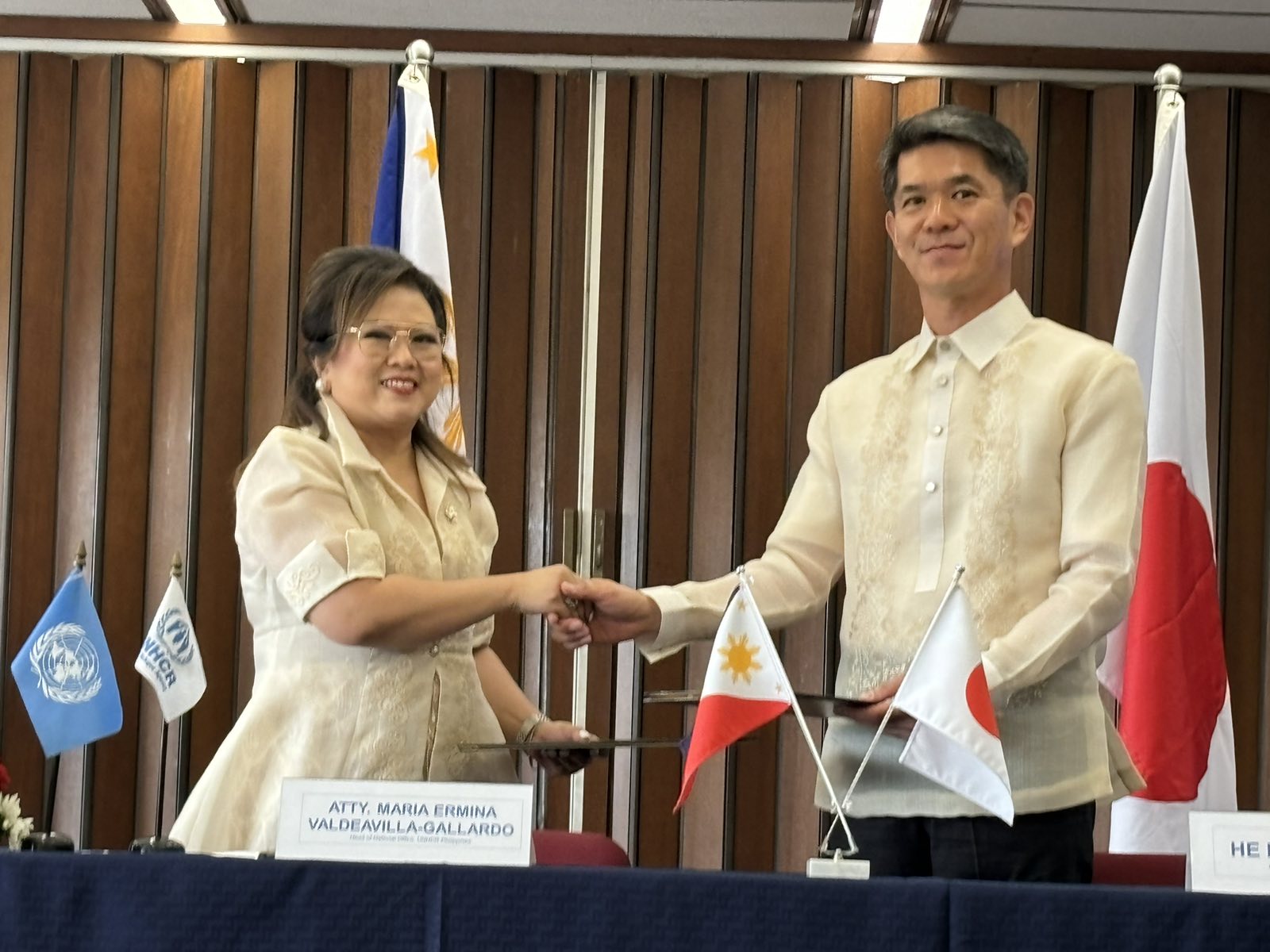News
Japan approves $5.5M grant for birth registration in BARMM

BIRTH REGISTRATION. Japanese Ambassador Endo Kazuya (right) and United Nations High Commissioner for Refugees (UNHCR) Philippines Head of National Office Maria Ermina Valdeavilla-Gallardo shake hands after the signing of a USD5.5 million grant in a ceremony in Pasay on Tuesday (June 10, 2024). The grant will be used to promote the digital birth registration of marginalized populations in the Bangsamoro region. (PNA photo by Joyce Rocamora)
MANILA – The Japanese government has approved USD5.5 million (PHP323.19) in grant to improve the access to birth registration of Sama Bajaus and other marginalized populations in the Bangsamoro region.
In a ceremony in Pasay on Tuesday, Japanese Ambassador Endo Kazuya and United Nations High Commissioner for Refugees (UNHCR) Philippines Head Maria Ermina Valdeavilla-Gallardo signed the exchange of notes for the 30-month initiative.
The funding will cover 30,000 direct beneficiaries and 100,000 indirect beneficiaries from 2024 to 2027, and an estimated additional 800,000 beneficiaries in the next 10 years.
The project targets the itinerant seafaring Sama Bajau people, unregistered children in the context of displacement due to armed conflict in the Bangsamoro Autonomous Region in Muslim Mindanao (BARMM), and decommissioned combatants and their families in line with the normalization process of the Philippine government.
This Japanese grant will expand UNHCR’s original birth registration initiative, through the BARMM Ministry of Social Services and Development (MSSD), which has so far helped over 5,000 people since 2019.
The funding will cover 50 municipalities in Maguindanao del Sur, Maguindanao del Norte, Lanao del Sur, Basilan, Sulu, and Tawi-Tawi from capacity building to the digitalization of local civil registrars by providing them a database system and information technology equipment.
Each of the target municipalities will register at least 600 individuals, totaling 10,000 Sama Bajaus, 10,000 unregistered children, and 10,000 decommissioned combatants and their families.
Ambassador Endo is optimistic this program would strengthen linkages between local government units and these marginalized sectors.
“As a long time partner for development in the BARMM, Japan wishes for an enduring peace in the region accompanied by sustainable opportunities for progress. In translating such wishes to action, Japan supports developing governance, social services, infrastructure, and livelihood improvement in the region,” he said.
As the BARMM prepares for the 2025 polls, Endo is hopeful this continued collaboration in the region would “cultivate an environment conducive for prosperity and self-growth”.
The UNHCR reported that there is still a “significant disparity” in birth registration rate in BARMM at 77 percent.
All provinces in the region, it added, are at the “bottom ten” of the lowest proportion of registered births in the country.
“We are optimistic that with access to birth certificates, individuals who have previously not been able to secure legal identity will now have access to education, health care, and other essential social services,” Valdeavilla-Gallardo said.
“With access to these services, we hope that they will soon have an active role in contributing to their communities and the nation as a whole,” she added.
Office of the Presidential Adviser on Peace, Reconciliation and Unity (OPAPRU) Senior Undersecretary Isidro Purisima, for his part, thanked Japan and the UNHCR for being “active partners” of the Philippine government in ensuring peace, stability, and development in the region.
He said this project aligns with the objectives of the normalization track under the Comprehensive Agreement on the Bangsamoro.
“Together, we are helping to provide everyone in the BARMM the opportunity to be recognized, protected and empowered to contribute to a genuine and long lasting peace,” he said.
Also in attendance were BARMM Minister of Social Services and Development Raissa Herradura Jajurie, UN Resident Coordinator in the Philippines Gustavo González, UN Children’s Fund (UNICEF) Philippines Representative Oyun Dendevnorov, and officials from the Department of Foreign Affairs, Department of Justice, and Philippine Statistics Authority.





















